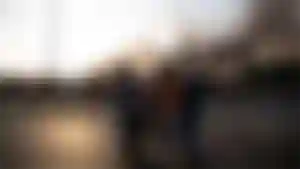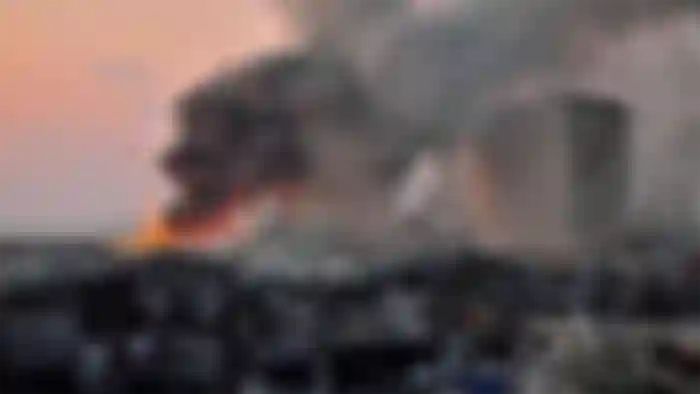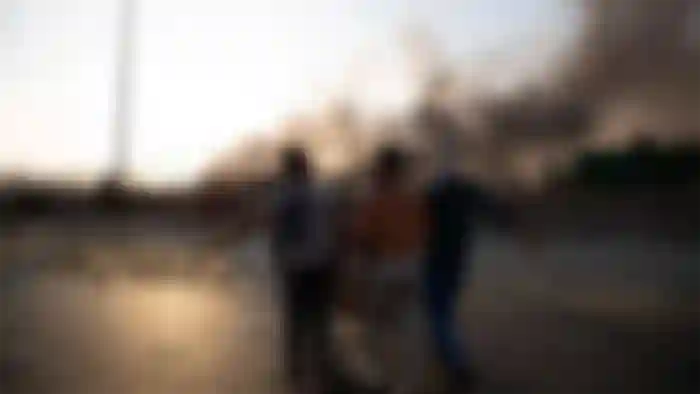A massive explosion ripped through central Beirut on Tuesday, injuring thousands of people and blowing out windows in buildings across the city.
The blast near the port in the Lebanese capital sent up a huge mushroom cloud-shaped shockwave, flipping cars and damaging distant buildings. It was felt as far as Cyprus, hundreds of miles away.
At least 50 people were killed in the blast -- with many more feared dead -- and at least 2,750 people have been wounded, Health Minister Hamad Hassan told reporters.
There were conflicting reports on what caused the explosion, which was initially blamed on a major fire at a warehouse for firecrackers near the port, according to NNA. The director of the general security directorate later said the blast was caused by "high explosive materials confiscated years ago," but did not provide further details.
An investigation into the explosion was announced by Lebanese Prime Minister Hassan Diab. The probe will include "revelations that will be announced about this dangerous warehouse which has been present since 2014," he said, without providing any additional details.
The lethal blast "will not pass without accountability," he said in a televised statement, adding that "those responsible will pay for what happened."
A red cloud hung over the city in the wake of the explosion as firefighting teams rushed to the scene to try to put out the fire. Footage from the scene captured the injured staggering through streets in the capital; and ambulances, cars and military vehicles packed with the wounded. One eyewitness described the scenes as "like an apocalypse."
At least 10 firefighters are missing, according to the city's governor Marwan Abboud, who said the scene reminded him of "Hiroshima and Nagasaki." "In my life I haven't seen destruction on this scale," Abboud said. "This is a national catastrophe."
The blast comes at a tense time in Lebanon. On Friday a UN-backed panel is expected to issue a verdict on the 2005 assassination of former prime minister Rafik Hariri, a move many fear will stoke sectarian tensions. The country is also in the midst of an economic meltdown, with ballooning unemployment, a tanking currency and poverty rates soaring above 50%.
Hospitals inundated
Chaotic scenes filled Beirut's hospitals Tuesday as doctors conducted triage on dozens of wounded people. Some had broken limbs, others had been showered with shards of glass. Some patients were unconscious.
Emergency wards are inundated with the injured. One of Beirut's major hospitals, Hotel Dieu, received around 400 injured patients, an employee told CNN.
The American University of Beirut Medical Center has been unable to receive more patients, partly due to blast damage, according to state media.
The Secretary-General of the Kataeb political Party, Nazar Najarian, died after being injured in the explosion, Lebanese state media NNA reported. He was in his office when the explosion happened.
The blast damaged buildings across the city, including the official residence of Lebanon's president, the headquarters of former Prime Minister Saad Hariri, and CNN's bureau in downtown Beirut. Homes as far as 10 kilometers away were damaged, according to witnesses.
One Beirut resident who was several kilometers away from the site of the blast said her windows had been shattered by the explosion. "What I felt was that it was an earthquake," Rania Masri told CNN.
"The apartment shook horizontally and all of a sudden it felt like an explosion and the windows and doors burst open. The glass just broke. So many homes were damaged or destroyed."

You can see injured people all over the streets in Beirut, glass all over the place, cars are damaged, it is like an apocalypse," said Bachar Ghattas, another eyewitness.
"It is very, very frightening what is happening right now, and people are freaking out. The emergency services are overwhelmed," Ghattas told CNN. "Beirut port is totally destroyed."
World mourns
Prime Minister Diab described the explosion as a "catastrophe" in his televised statement. He concluded by making "an emergency call to all those countries who love this country to stand by us and to help us heal our deep wounds." World leaders soon expressed their condolences amid the unfolding tragedy.
Israel offered humanitarian medical assistance to Lebanon -- a significant offer as Lebanon is one of a small number of countries that Israel regards as an enemy state. There have been no diplomatic relations since a ceasefire signed between the two countries in 1949.
The UK, Turkey, Qatar and Spain were also among the countries that offered their support to Lebanon.
Jordanian Foreign Minister Ayman Safadi called his Lebanese counterpart Charbel Wahbeh to say that"Jordanians stand in support with Lebanon and its Lebanese brothers and are ready to offer any help they need," he said in a tweet.
French President Emmanuel Macron said "rescue and aid" were on the way to Lebanon, while expressing solidarity with the "Lebanese people after the explosion that caused so many casualties and so much damage tonight in Beirut."

Iran's Foreign Minister Javad Zarif tweeted that his country was ready to help Lebanon "in any way necessary."
"My thoughts are with the people of #Lebanon and with the families of the victims of the tragic #BeirutBlast," President of the European Council Charles Michel said in a tweet. "The EU stands ready to provide assistance and support."
The United States Ambassador in Lebanon, Dorothy Shea, expressed "heartfelt sympathies" to the victims and their families after "having witnessed the horrific explosions at the Port," she said in a statement shared on Twitter.
"We mourn each loss from this terrible tragedy alongside the Lebanese people," the US Ambassador added.
CNN's Schams Elwazer, Mohammed Tawfeeq, Tara John, Alessandra Massi, Nada AlTaher, Hamdi Alkhshali, Amir Tal and Andrew Carey contributed to this report.

